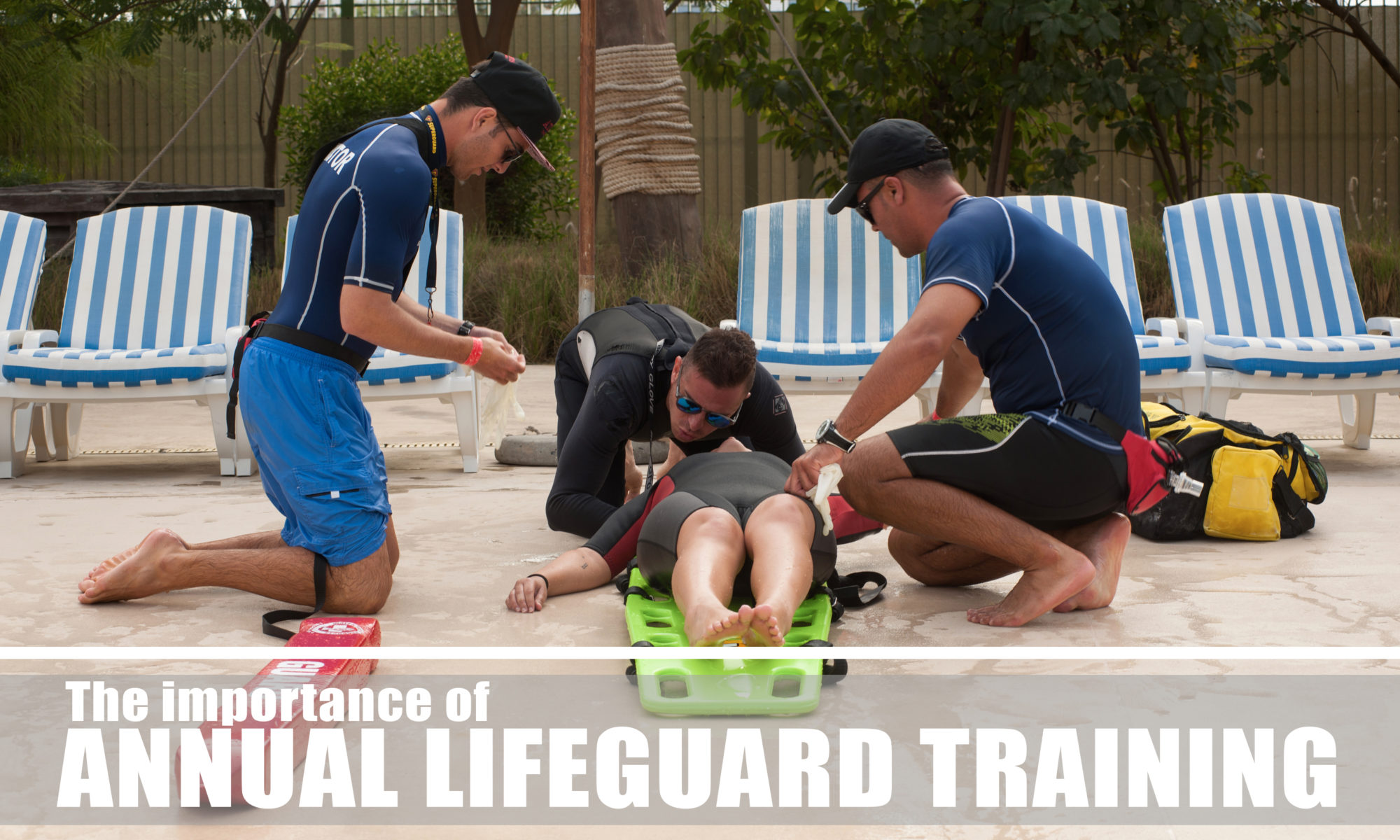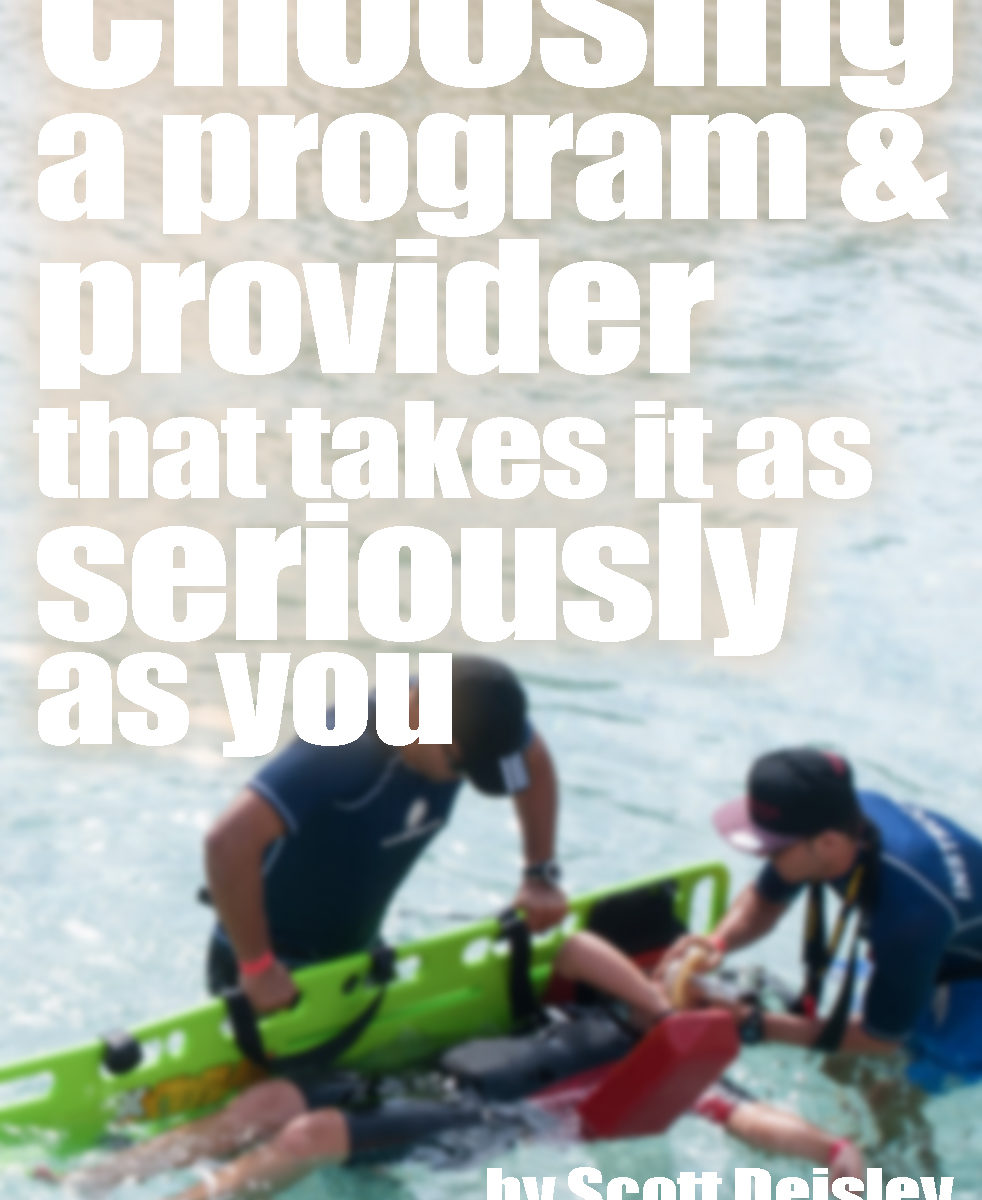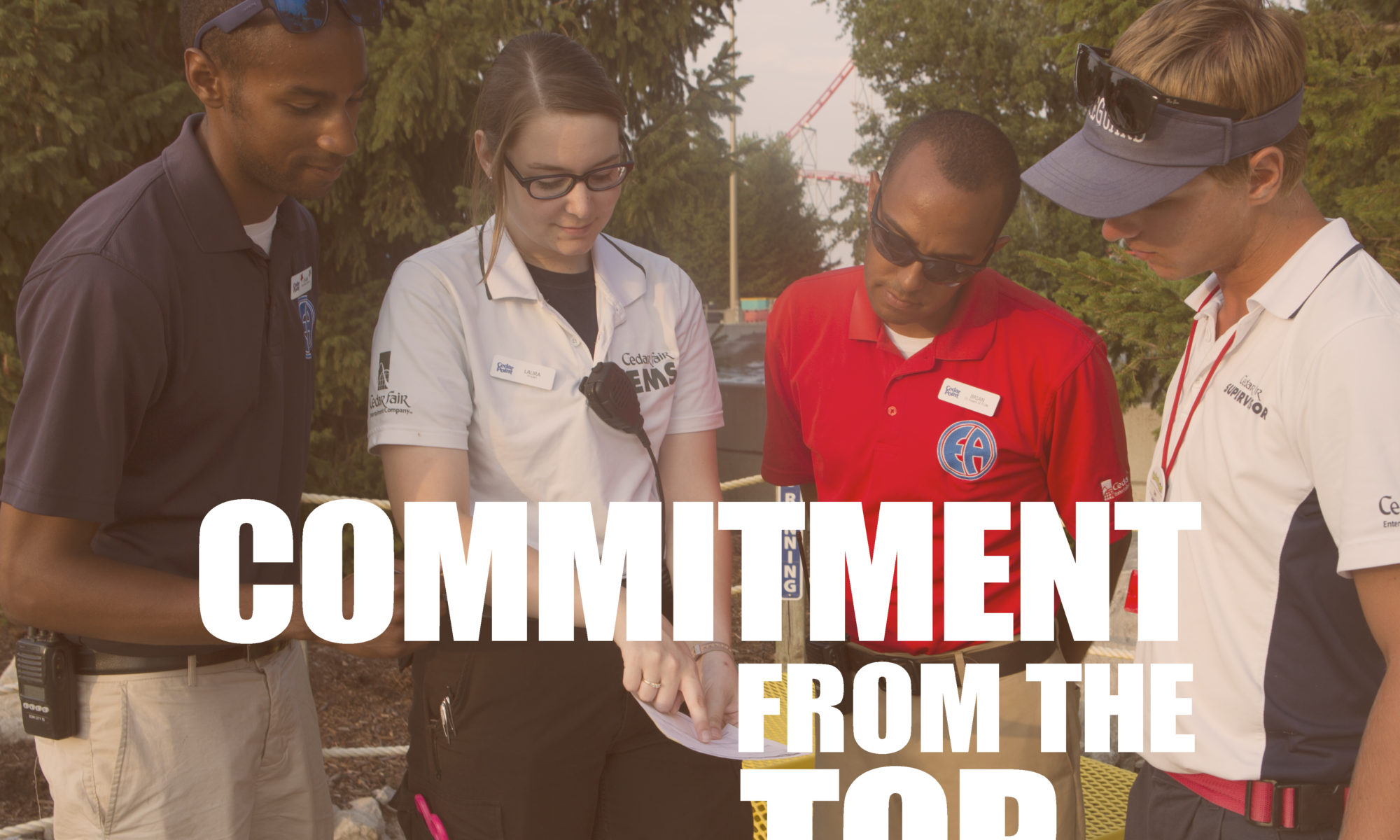I have been operating waterparks for over 30 years. I have been fortunate enough to never have experienced a drowning at a facility I operated. We have been tested, but we have always been successful. I think a fair annual average of attendees at these parks has been 750,000. That’s 22,500,000 people that came out for a fun day and went home alive. That’s a big number. That’s a lot of people that got to graduate from primary school, go on a first date, get married, have kids, and generally do things to make the planet you live on a better place. Think about it.
In my line of work, I have heard the below bulleted questions/statements over and over again. Of course, I have taken artistic license, making them sound as ridiculous as I can, but really, this is the basis of what I hear from people who are trying to justify their desire to keep Lifeguarding from being important and subsequently complicating their lives.
So here’s the list:
I’m a hotelier, and I can legally get away with operating a swimming pool for my guests to use without a Lifeguard. Why should I care about safety in and around the pool?
Why should I insist, if I do have Lifeguards, that they should watch the pool rather than fetch drinks and food or move umbrellas and sunbeams?
The law requires me to have a Lifeguard at the swimming pool I operate for my guests, and I have one. I have satisfied the law. Why would I care if they can’t see the whole pool? I have satisfied the law. Isn’t that enough? Some unwatched water isn’t a big deal, right?
I’m a waterpark operator, and so long as I satisfy the legal requirement to have a certified Lifeguards, why shouldn’t I just do the bare minimum program and make it all about cost savings?
If I have satisfied all the minimum legal requirements relating to my swimming facility, why should I ever go back to see if it’s effective and risk is being managed?
My staff went through a Lifeguard class that is valid for two years and requires no ongoing training or practice of the skills they learned. Why would this worry me? It’s still valid.
My Lifeguards swim every day, isn’t that enough?
I think we are operating an unsafe swimming facility, but my boss feels it’s ridiculous to spend any more money than we are on water safety efforts. Why would I want to argue about it?
We have been operating for a long time with inadequate water safety measures and have never had a drowning. Why would I make a change and start doing it right now?
I have signs that say “swim at your own risk.” If people can’t swim well, they shouldn’t get in the pool. If they’re stupid enough to get in, it’s really their fault if they drown, isn’t it? I even have a throw ring and a shepherd’s crook. We’re all good?
My team have Lifeguard training from one place and First Aid and CPR training from another. They have all the required certifications. I’m covered, right?
So, why should Lifeguarding be important to me, and why should I let it complicate my life? The answer might be as simple as,
Food & Water
There are 3536 drowning deaths per year in the US. In comparison, there are approximately 5000 food poisoning deaths there per year. The numbers are remarkably similar, but when you take into consideration that people eat three meals a day and then sometimes snack in between, the exposure is great. Most people don’t swim daily, much less three or more times daily. Theoretically, the number of food poisoning deaths should be at least three times higher than drowning deaths.
Why then are they not?
In the Food & Beverage industry, the efforts to ensure food hygiene are very stringent and strictly policed. They are policed internally, and they are policed by municipal agents. Freezers and refrigerators use monitoring devices that track temperatures and report fluctuations. Cleaning regimes are recorded. Holding times are respected. Generally, everyone in the operation is required to take a food safety/hygiene class as often as annually. Health Departments conduct unannounced audits of food service facilities, judge and score them on their performance. And the list goes on and on. Strangely, when you go out to the pool deck, there is nothing but a sign that says, “swim at your own risk” or at best, a person with a Lifeguard shirt on who is polishing light fixtures with their back to the pool while your children swim.
Strange really, isn’t it? Something so inherently dangerous is given so little thought or consideration. I mean, people can’t breathe under water. When submerged for a long enough period of time, they just inhale it and without intervention, they die.
Practice Makes Perfect:
I was told a long time ago that Lifeguarding is 99% boredom and 1% terror. This means that most of the time nothing remarkable happens to a Lifeguard while they are working, but once in a great while something happens that sends their world into total chaos. 99% of the time, they are dismissed as beach bums. 1% of the time the expectation is that they perform on the level of Paramedics, Nurses or Doctors. They’re expected to recall their training and save lives……..on the spot. This transformation occurs in a flash and the perceiver feels it to be quite reasonable. The problem with this way of thinking is, the professionals they are compared to in this moment are highly trained, in-serviced, practiced and responding to emergencies daily as part of their normal work life.
People can learn by being told something, but they learn much more effectively when they are engaged and participate in what they are learning. People learn by “doing.” People also retain by “doing.” If you do something every day, it becomes second nature. It would stand to reason then, that if a person is taught skills by doing them, and then practices them regularly, they will retain them and when called upon to perform, they will act as a reflex. Even when skills are taught effectively if they are not practiced regularly, they will fade from memory in a very short time. If the initial training was not done in such a way as to imprint on the person, they will have little hope of retaining any of it for very long.
So, let’s go back to the 99% vs 1% concept. Most Lifeguard training programs take around 24 hours to complete, part of that being water work, part theory and some include or integrate CPR and First Aid into the training. At the end, there is an assessment of whether or not the information was absorbed and able to be put to work by the candidate. Lifeguards who pass are given a certification. The certification could be valid for as many as three years, and it implies that those skills, learned over 24 hours, will remain in a very meaningful way, in the head, heart and soul of the person for that whole three years. A person without any mandated or checked practice or update………for three years. It’s expected to be ready for them to draw on during their 1% when they are called on to either save a drowning person’s life, or fail them miserably, watching them to die on a pool deck somewhere. If I am the drowning person…….I don’t like my odds, and I don’t like setting that poor soul up for failure and a life of regret.
Fear of Conflict and an Inability to Change:
So, why do Lifeguard programs offer two and three year certifications? Why do they not require practice sessions? A few answers might be that many awarding bodies are either too big to be able to make changes without endless committees approving the move, or they fear that the move will be poorly received by their clientele. What else could it be?
The cost to run a Lifeguard class is the same regardless of if the validity is one, two or three years. Therefore, the price is often the same regardless of if the validity is one, two or three years. People view comparatively shorter validities as bad comparative value for money. The problem is, the skills aren’t there even if the validity on the certification says they are. In reality, it’s no different than selling chicken with a realistic “use by” date on the package versus one three times longer. By the time you open the packet, the chicken isn’t edible any more. How is that good value for money? But people need chicken in the icebox, and they buy it to be able to say they have it, in the hopes that they never have to open the package. Never have to smell the foul odor of failure. They never have to face that 1%.
This is why companies offering two or three-year certification continue to offer them. People keep buying them. If operators would just face the fact that people don’t retain the information that long, they would stop buying from them. Frankly, with all the evidence about skill erosion, the butcher should be ashamed of themselves to put that chicken on the shelf at all. But if they do, let the buyer beware.
So, let’s go back to those questions again:
I’m a hotelier, and I can legally get away with operating a swimming pool for my guests to use without a Lifeguard. Why should I care about safety in and around the pool? The law hasn’t caught up with doing the right thing. Fine. Don’t use that as an excuse to ignore what you already know. People that can’t swim die when they find themselves in water over their heads. The only way to change that is to put a trained, in-serviced Lifeguard on deck with the sole responsibility of watching the water and responding to emergencies. Make sure he/she has the right equipment to help them do their job. Do the right thing.
Why should I insist, if I do have Lifeguards, that they should watch the pool rather than fetch drinks and food or move umbrellas and sunbeds? Let’s say you agree to the general philosophy from the last question/answer. A Lifeguard can have the best skills in the world, but if they aren’t watching the water, they can’t see a Guest in distress. If they don’t know they are needed, they can’t act. Set them up for success.
The law requires me to have a Lifeguard at the swimming pool I operate for my guests, and I have one. I have satisfied the law. Why would I care if they can’t see the whole pool? I have satisfied the law. Isn’t that enough? Some unwatched water isn’t a big deal, right? Didn’t we just cover this?
I’m a waterpark operator, and so long as I satisfy the legal requirement to have a certified Lifeguards, why shouldn’t I just do the bare minimum program and make it all about cost savings? Like most things, quality makes a difference when it comes to Lifeguards. If you’re going to cut costs, cut the thread count of the towels. The worst thing that will happen is you’ll get a few complaints. Nobody dies.
If I have satisfied all the minimum legal requirements relating to my swimming facility, why should I ever go back to see if it’s effective and risk is being managed? Don’t expect what you don’t inspect. When the cat’s away, the mice will play. Shall I continue? People become complacent if they are not held accountable and monitored. Likely you check food hygiene pretty regularly.
My staff went through a Lifeguard class that is valid for two years and requires no ongoing training or practice of the skills they learned. Why would this worry me? It’s still valid. Just because the paper says they remember their training doesn’t mean they do. Skills erosion is a real thing. People that don’t practice technical skills begin to lose them within months. In a year, most of it is gone. In two years, I wouldn’t trust them to save my cat from drowning.
My Lifeguards swim every day, isn’t that enough? A good swimmer is a good swimmer. A good Lifeguard is a good Lifeguard. If your Lifeguards practice swimming, that’s what they’ll be good at. If they practice Lifeguarding and lifesaving skills, that’s what they’ll be good at. While I can say that most Lifeguards I know could definitely work on their fitness and swimming skills, myself included, without the lifesaving skills, they won’t know what to do when they arrive at the crisis. They’ll get there fast, and they’ll look good getting there, but they’ll look like a real idiot when they don’t know what to do with what they find there.
I think we are operating an unsafe swimming facility, but my boss feels it’s ridiculous to spend any more money than we are on water safety efforts. Why would I want to argue about it? Because if someone drowns and you didn’t at least make your case, it will be something you will have to live with for the rest of your life and something you will always regret. Don’t let that happen to you. Speak up. Arm yourself with the right argument and take it forward. Hopefully this article gives you the basis of a good argument.
We have been operating for a long time with inadequate water safety measures and have never had a drowning. Why would I make a change and start doing it right now? The odds are slowly shifting against you. The longer you go without a problem, the more likely is that it is headed your way. It may never happen, but is that a bet you want to make? Be happy that you have gotten away with it for as long as you have. Make the change now, before you have to wish you had.
I have signs that say “swim at your own risk.” If people can’t swim well, they shouldn’t get in the pool. If they’re stupid enough to get in, it’s really their fault if they drown, isn’t it? I even have a throw ring and a shepherd’s crook. We’re all good? Look, I will agree that people are often their own worst enemy. All you have to do is look at the Darwin Awards and you’ll know that. If someone does something stupid at home, there’s nothing you can do about it. But shouldn’t you protect them from themselves when they’re on your watch? I mean, you put railings up on balconies, don’t you? You could just put up a sign that says, “no railing, don’t fall off.” Accidents and stupid people happen. A sign is not enough.
My team have Lifeguard training from one place and First Aid and CPR training from another. They have all the required certifications. I’m covered, right? Each training has a start and a stop point. What they don’t typically do is build bridges between the concepts. In some Lifeguard trainings the skill ends at the side of the pool. In others, they end when the Guest is extricated from the pool. The challenge is, if the transition from the pool to the deck, or the deck to the on-deck protocols are not practiced and all the little pieces put in their place, it’s at best awkward. At worst, it stops progress of any kind. The sequence of steps during an emergency are more important than at any other time. If someone is not sure, they are likely to freeze. This is no time to stall or discontinue care. Add the additional administrative nightmare of keeping track of all those expiration dates and scheduling all those classes. Find a program that ensures start to finish care and practices it as a part of their training.
So, what do you think? It’s a matter of life and death. The chicken in my kitchen is always fresh. Is yours?
Words by Scott Deisley, Managing Director, Safety Skills Training DMCC, Scott.Deisley@sstworldwide.com















